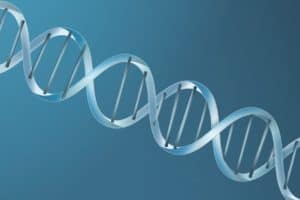What is Autism and What Are Its Levels?
Autism, medically known as Autism Spectrum Disorder (ASD), is a neurodevelopmental condition that affects communication, social interaction, and behavior. It is called a spectrum because it manifests in different ways and with varying degrees of intensity in each person. It is not a disease nor something that needs to be “cured”; rather, it is a different way of perceiving and experiencing the world. Some individuals may require significant support in their daily lives, while others can be highly functional and independent.
Characteristics of Autism
People with autism may exhibit:
- Difficulties in communication: Individuals with autism may struggle with verbal expression, understanding non-verbal language, or maintaining a conversation.
- Challenges in social interaction: They may find it difficult to form and maintain relationships, interpret emotions and social behaviors, or share interests and emotions with others.
- Repetitive behaviors and routines: Some individuals with autism may engage in repetitive movements (such as rocking or hand-flapping), follow strict routines, and have difficulty adapting to changes in their environment or schedule.
- Restricted interests: They may develop intense and highly focused interests in specific areas or activities, often to the exclusion of other interests or activities.
- Sensory sensitivities: Individuals with autism may experience hypersensitivity or hyposensitivity to sensory stimuli, such as sounds, lights, smells, tastes, and textures.
Each person on the spectrum is unique and may have strengths in certain areas, such as memory, logical thinking, mathematics, or creativity.
Levels of Autism Spectrum Disorder
ASD is classified into three levels based on the amount of support a person needs in their daily life. This classification helps better understand individual needs and provide the appropriate resources.
Level 1: Requires Support
- Individuals at this level can communicate verbally but struggle to initiate and maintain conversations.
- They may have difficulty understanding social norms and exhibit atypical responses in interactions.
- They require some support in daily life, especially in social situations or when facing unexpected changes.
Level 2: Requires Considerable Support
- They have greater difficulties in both verbal and non-verbal communication.
- They find it harder to adapt to changes and may exhibit more pronounced repetitive behaviors.
- They need a significant level of support to manage daily activities and interactions with their environment.
Level 3: Requires Very Significant Support
- They experience severe communication difficulties and may be nonverbal or use limited forms of expression.
- Repetitive behaviors can be very intense, and they may show strong resistance to changes.
- They require constant assistance to carry out everyday activities and ensure their well-being.
Conclusion
Autism is not a condition that should be “cured” but rather understood and respected. Every person on the spectrum has unique abilities and challenges, and with the right support, they can reach their full potential. Awareness and acceptance of autism are essential to building an inclusive and empathetic society where all individuals can fully participate.













